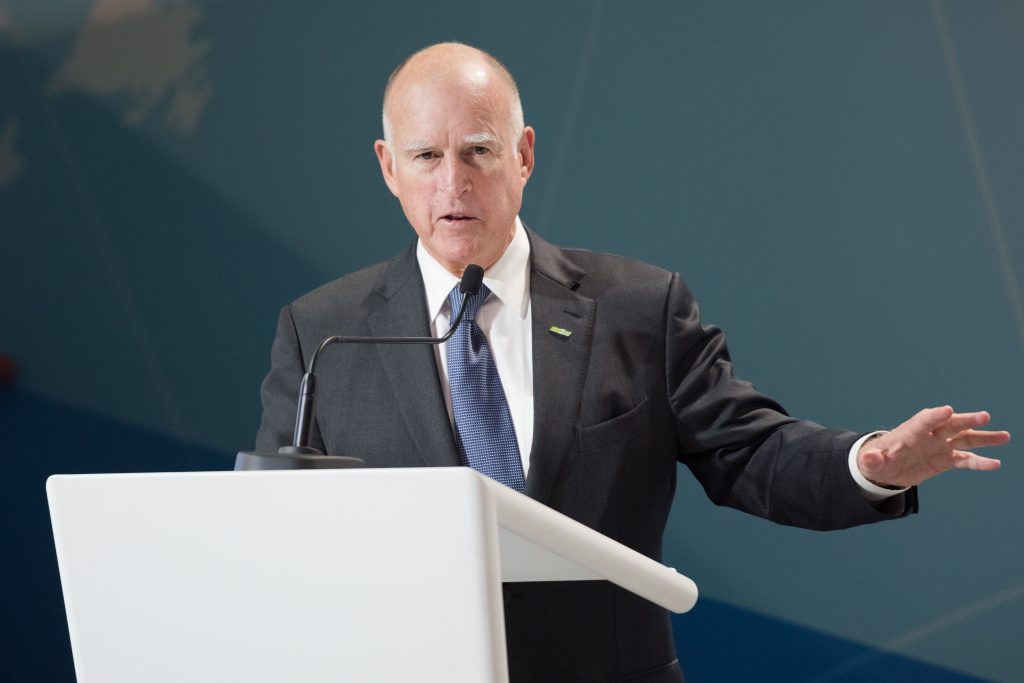California Governor Jerry Brown told state senators Sunday that he would not sign a bill requiring the state's public universities to offer medicated abortions, saying that such legislation "is not necessary."
"According to a study sponsored by supporters of this legislation, the average distance to abortion providers in campus communities varies from five to seven, not an unreasonable distance," the governor wrote in letter dated September 3o.
"Because the services required by this bill are widely off-campus, this bill is not necessary."
State Bill 320, which also pledged millions of dollars to train clinic staff on how to advise and administer the RU-486 “abortion pill” to students, was sent to Governor Brown's desk after passing the State Assembly August 29.
Pro-life advocates had pointed out that without ensuring adequate services for pregnant and parenting students, SB 320 would coerce students’ reproductive decisions.

Student health centers at California’s public universities do not provide abortions, but they do provide referrals to abortion facilities. However, many of these centers do distribute the “morning-after pill,” which can block fertilization or prevent a fertilized egg from implanting in a uterus.
kathleen-domingo, senior director of the Office of Life, Justice & Peace for the Archdiocese of Los Angeles, said that she was “grateful” Brown vetoed the bill.
“He recognized that this bill was unnecessary for California and did not empower our college women, but only offered more abortion for our state,” said Domingo.
Instead, Domingo said she hoped the state would pass bills to assist college students who are already parents. Such legislation would “ensure women’s Title IX protections for pregnancy are known and understood, and to make childcare and family housing for student mothers and fathers readily available and accessible for California women.”
Her comments were echoed by executive director of the California Catholic Conference Andy Rivas, who said that “Hopefully next session we can convince legislators to pass a bill that students and universities really need, one that provides financial support for students with children.”
Rivas said he was not surprised by the veto, and that students “were not pushing for passage” of the bill and universities “did not want the responsibility of providing abortion pills to students.”
Pro-life advocates also applauded Brown’s move. Abby Johnson, a former Planned Parenthood employee-turned-pro-life advocate, said that the veto was a “huge victory for not only the pro-life movement in California, but the students at these universities” as well.
“These drugs are dangerous and are often not discussed truthfully with women who decide to take them to end their pregnancy,” Johnson told CNA.
“I took these same drugs to end one of my pregnancies and I thought I was dying. I was in a bathtub full of blood but the abortion clinic was unfazed by my reaction - it happens often but is hardly ever disclosed.”
Johnson’s group, And Then There Were None, provides assistance to abortion industry employees who are looking to leave their jobs.
Catherine Glenn Foster, President and CEO of Americans United For Life, agreed with Brown’s description of the bill as unnecessary, and said that the governor’s veto had “made California safer for women, and college campuses safer for their unborn children.”
“Governor Brown recognized that in a state where Medicaid already pays for elective abortions, there is no issue of access, since, as he said yesterday, ‘the average distance to abortion providers in campus communities varies from 5 to 7 miles, not an unreasonable distance,’” said Foster.
Foster also pointed out that “college health clinics are not equipped to handle the very serious risks of chemical abortion drugs,” which can include bleeding and infection.
This article includes reporting by Christine Rousselle at Catholic News Agency.

